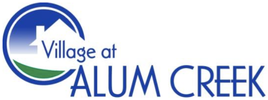Vehicle Parking Policy
Effective February 13, 2020
Problem
Homeowners are not following the vehicle parking restrictions specified in the Deed Restrictions.
The section of the VAC HOA Deed Restrictions that apply to this policy are:
Section 2.03
No truck over one ton, trailer, boat, camper, recreational or commercial vehicle shall be parked or stored on any Lot unless it is in a garage or other vehicle enclosure out of view from the street and abutting properties, provided, however, that nothing herein shall prohibit the occasional nonrecurring temporary parking of such truck, trailer, boat, camper, recreational vehicle or commercial vehicle on the premises for a period not to exceed twenty-four (24) hours in any period of ten (10) days. No automobile or motor-driven vehicle shall be left upon any Lot for a period longer than seven (7) days in a condition wherein it is not able to be operated upon the public highway. After such period the vehicle shall be considered a nuisance and detrimental to the welfare of the above described real estate and shall be removed there from.
Policy
The following clarifies these restrictions.
Certain types of vehicles CANNOT be parked in your driveway or on any lot in our community for more than 24 hours within a 10 day period. These types of vehicles must be in your garage or stored outside of our community.
This includes but is not limited to:Boat
Camper
Recreational Vehicle
Wave Runner
Dump truck or other heavy construction equipment
Trailer
Box Truck
Pick-up Truck with more than four tires (aka Dualies and Tandem axle trucks)
Panel Van
Bus
Semi
Since you cannot have a shed or other unattached building on your property, the “other vehicle enclosure” described in the restrictions has no impact on our policy or its enforcement.
The Board recognizes there will be times when you need to store such items outside of your garage for more than a 24 hour period. We ask that you communicate those requirements to the Board ahead of time to avoid a Violation Notice and/or the assessment of fines. Communication can be done via the Contact HOA Trustees or by contacting the management company via email, U S Mail, or by phone. Approval of the Board must be obtained. Approval for more than a seven (7) day period will not be granted.If your automobile or motor-driven vehicle can NOT be operated on a public highway, it MUST be stored in your garage or stored outside of our community. After the vehicle has set in your driveway or on any lot in our community for more than seven (7) days it will be considered a nuisance. Violation Notices will be sent to the homeowner and fines will be assessed per our Enforcement Policy. Legal action will be pursued at the owner's expense if the situation is not remedied via notices from the HOA.
Inoperable includes but is not limited to vehicles with:Flat tire(s)
Expired License plate
Mechanical failure that prevents the vehicle from functioning as designed
Body damage that prevents the vehicle from functioning as designed
The Board recognizes there may be circumstances when you need more than the seven (7) days spelled out in the deed restrictions to take care of an inoperable vehicle. We ask that you communicate those requirements to the Board ahead of time to avoid a Violation Notice and/or the assessment of a fine. Communication can be done via the Contact HOA Trustees page or by contacting the management company via email, U S Mail, or by phone. Approval of the Board must be obtained. Approval of more than a thirty (30) day period will not be granted.
Vehicles must be parked in the garage, on the driveway, or on the street. No vehicle can be parked on non-paved areas of a lot. Grass is considered a non-paved area.
Any additional paving on a lot must follow the guidelines established in the Warranty Deed Restrictions in Sections 2.05, 3.02, and 3.06 (E) and must have prior approval from the Architectural Review Committee and/or the Board.
Paving materials must match the existing paving material of the existing driveway.
Setback rules must be followed.

